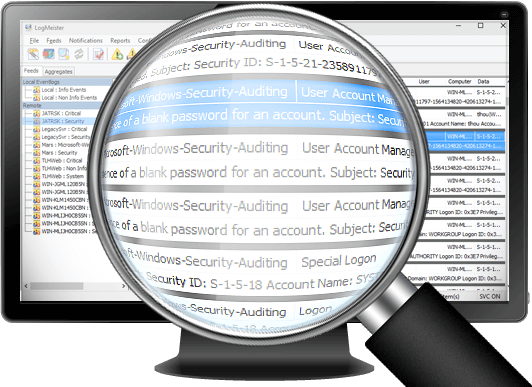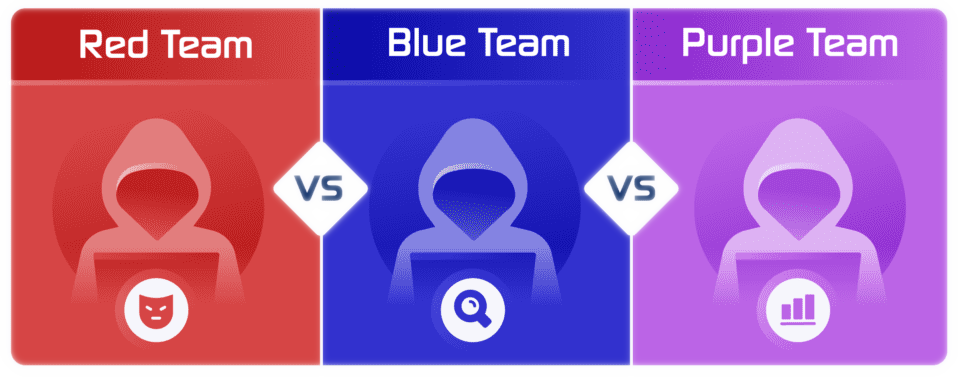In today’s technology-driven world, businesses heavily rely on various technological systems and applications to streamline their operations. As a result, the significance of effectively monitoring and managing log data has become paramount. Enter the central log server, a powerful tool that can offer numerous benefits to organizations in terms of system understanding, management, and optimization.
Centralization: Streamlining Data Analysis
One of the primary advantages of a central log server is the ability to centralize log data from multiple systems and applications in one location. This consolidation facilitates seamless searching and analysis of data, eliminating the need for manual retrieval from individual sources. By harnessing the power of centralization, organizations gain the ability to identify potential issues and detect trends that may have otherwise gone unnoticed.
Enhanced Security: Safeguarding Log Data
When it comes to log data, security is of utmost importance. By storing log data in a central location, businesses can protect it from unauthorized access and mitigate security threats. This level of data security aids organizations in complying with industry regulations and standards that demand the collection and storage of log data in a secure manner.
Compliance Made Easy
Many industries impose specific regulations and standards, mandating organizations to collect and retain log data. With a central log server in place, meeting these requirements becomes significantly more manageable. The server ensures seamless adherence to compliance protocols, allowing businesses to navigate the intricate landscape of regulatory frameworks more efficiently.
Auditing: Tracking System and User Activities
Accurate auditing is an essential benefit provided by a central log server. By maintaining comprehensive records of system and user activities, organizations gain the ability to track and audit specific actions, along with their respective timestamps. This robust auditing capability proves valuable for troubleshooting, incident response, and compliance-related processes.
Efficient Troubleshooting: Accelerating Issue Resolution
Troubleshooting is a critical aspect of maintaining smooth operations within any organization. With a central log server, the aggregation of log data from multiple sources makes it easier to correlate logs across various systems and applications. Consequently, this streamlines the troubleshooting and root cause analysis processes, enabling faster issue resolution when problems arise.
Scalability: Handling Large Volumes of Log Data
In a dynamic business environment, scalability is essential. A central log server offers the advantage of handling large volumes of log data, making it more adaptable and scalable than relying on individual systems. Regardless of an organization’s size, this scalability ensures seamless growth and expansion without compromising the efficiency of log data management.
Real-time Alerting: Proactive Monitoring and Incident Response
With a central log server, businesses can implement real-time monitoring of logs for specific events or patterns. The server allows the setup of alerts to notify stakeholders whenever predetermined conditions are met within the log data. By centralizing the management and triage of alerts, organizations can automate the alerting process and create a historical record of alerts, which proves invaluable for troubleshooting, incident response, and compliance purposes. Furthermore, integrating the alerting system with other tools such as incident management systems and IT service management tools streamlines incident response and resolution procedures.
In conclusion, implementing a central log server offers a multitude of benefits for organizations, regardless of their size. From bolstering security measures and ensuring compliance to expediting troubleshooting and enabling scalability, a central log server empowers businesses to gain a comprehensive understanding of their technology
systems and users. By centralizing log data, businesses can optimize their operations, make informed decisions, and proactively address any issues that may arise.
Simplifying Log Management: A Comprehensive Solution
A central log server serves as a comprehensive solution for businesses looking to simplify their log management processes. By consolidating log data from various sources, organizations can eliminate the hassle of navigating through multiple systems and applications to access crucial information. This streamlined approach saves time, enhances productivity, and enables teams to focus on more strategic tasks.
Improved Performance and Efficiency
With a central log server in place, businesses can achieve improved performance and efficiency across their entire infrastructure. The ability to track and analyze log data in real-time allows for the identification of performance bottlenecks, system errors, or unusual patterns. By promptly addressing these issues, organizations can optimize their systems, enhance user experience, and minimize downtime.
Actionable Insights: Leveraging Data for Success
The abundance of log data can be overwhelming if not properly managed. A central log server offers the advantage of harnessing this data to derive actionable insights. Through advanced analytics and reporting capabilities, businesses can uncover valuable information about user behavior, system performance, and potential areas for improvement. These insights empower organizations to make data-driven decisions and stay one step ahead in an increasingly competitive landscape.
Seamless Integration with Existing Systems
Integrating a central log server with existing systems and applications is a seamless process. It ensures compatibility and allows businesses to leverage their current infrastructure investments. Whether it’s an enterprise resource planning (ERP) system, a customer relationship management (CRM) platform, or a cloud-based solution, a central log server can seamlessly integrate with these systems, providing a unified view of log data and facilitating holistic system management.
Partnering with Helpdesk.ca: Unlocking the Full Potential
To fully leverage the benefits of a central log server and optimize log data management, organizations can turn to Helpdesk.ca. As a leading provider of comprehensive IT solutions, Helpdesk.ca offers tailored log management services that cater to businesses of all sizes and industries. Their expert team understands the intricacies of log data analysis, compliance requirements, and incident response. By partnering with Helpdesk.ca, businesses can gain peace of mind, knowing that their log data is in capable hands.
Helpdesk.ca offers a range of services, including log data centralization, real-time monitoring, alerting, compliance support, and in-depth reporting. Their holistic approach ensures that businesses can focus on their core operations while reaping the benefits of a centralized log server. With Helpdesk.ca as a trusted partner, organizations can unlock the full potential of their log data and achieve enhanced security, streamlined operations, and improved decision-making.
Embracing the Power of a Central Log Server
In today’s technology-driven landscape, a central log server has become an indispensable tool for businesses. From enhancing security and compliance to simplifying log management and unlocking valuable insights, the benefits are undeniable. By implementing a central log server and partnering with a trusted provider like Helpdesk.ca, organizations can pave the way for success, harnessing the power of log data to drive efficiency, productivity, and long-term growth.
Remember, the key to staying ahead in the digital age is not just collecting data but effectively managing and leveraging it. A central log server is the foundation upon which organizations can build a data-driven future.
Empowering Businesses with Comprehensive Support
When it comes to maximizing the benefits of a central log server, Helpdesk.ca is a trusted partner that provides comprehensive support to businesses. With their expertise in log data management and IT solutions, Helpdesk.ca offers a range of services tailored to meet the unique needs of each organization.
- Log Data Centralization: Helpdesk.ca specializes in centralizing log data from various systems and applications, ensuring a unified and easily accessible repository for analysis and monitoring.
- Real-time Monitoring and Alerting: By implementing advanced monitoring tools, Helpdesk.ca enables businesses to track log data in real-time. They can set up customized alerts to proactively identify critical events or patterns, allowing for swift incident response.
- Compliance Support: Helpdesk.ca understands the importance of compliance in today’s business landscape. Their team ensures that log data collection, storage, and management align with industry regulations and standards, enabling businesses to meet compliance requirements effortlessly.
- Advanced Analytics and Reporting: Leveraging their expertise in log data analysis, Helpdesk.ca provides businesses with actionable insights derived from comprehensive analytics and reporting. These insights empower organizations to make informed decisions and drive continuous improvement.
- Integration with Existing Systems: Helpdesk.ca seamlessly integrates a central log server with existing systems and applications within an organization’s IT infrastructure. This integration ensures compatibility and enables efficient management of log data alongside other critical systems.
- Expert Support and Troubleshooting: Helpdesk.ca‘s team of skilled professionals offers expert support and troubleshooting services. They are equipped to handle any log data-related issues, ensuring smooth operations and minimizing downtime.
By partnering with Helpdesk.ca, businesses gain access to a suite of services designed to optimize log data management, enhance security, and drive operational efficiency. Helpdesk.ca‘s commitment to excellence and customer satisfaction sets them apart as a reliable and valuable partner in the realm of central log server implementation.
Embrace the Potential of a Central Log Server with Helpdesk.ca
In conclusion, the importance of a central log server in modern businesses cannot be overstated. From centralizing log data to enhancing security, compliance, and troubleshooting capabilities, a central log server offers a wide array of benefits. To fully unlock its potential, organizations can rely on the expertise of Helpdesk.ca. With their comprehensive support, businesses can harness the power of log data, drive efficiency, and make informed decisions that propel them towards success in today’s fast-paced digital landscape.
Remember, in a data-driven world, effective log data management is the key to unlocking actionable insights and gaining a competitive edge. Embrace the potential of a central log server and partner with Helpdesk.ca to navigate the complexities of log data management with confidence and achieve long-term success.



